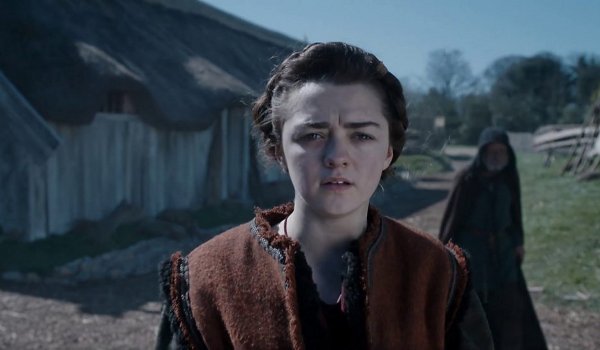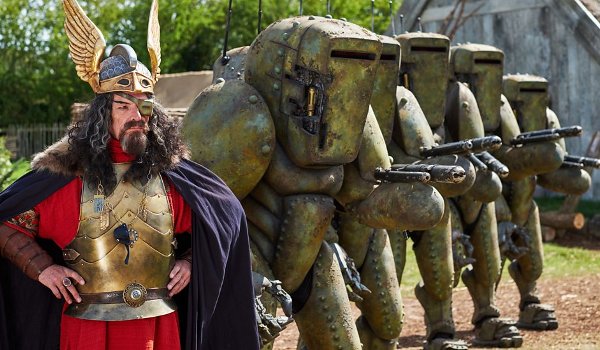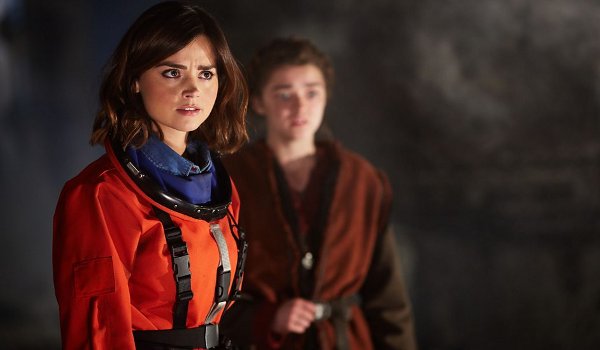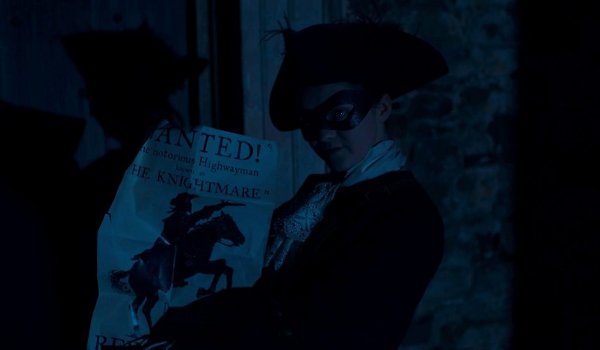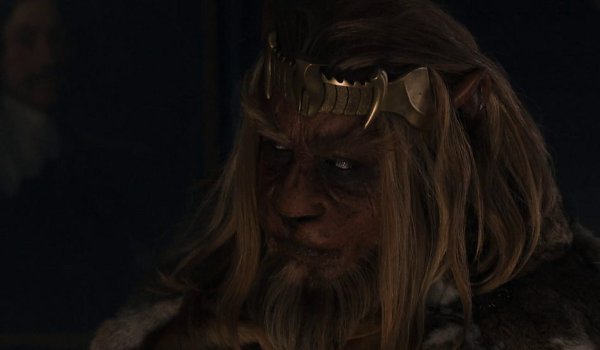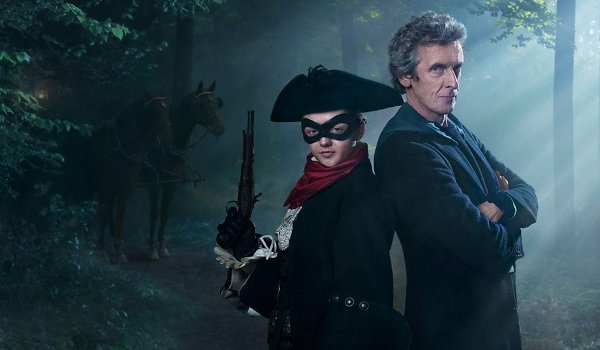
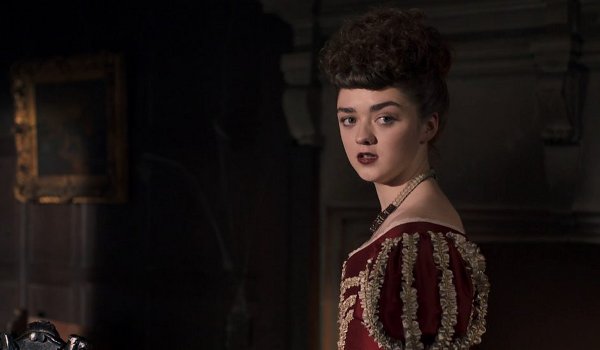
Another two-part episode brings The Doctor (Peter Capaldi) into contact with Vikings and thieves while introducing a new recurring character to the Whoverse we’re likely to see more of this season (and possibly beyond). “The Girl Who Died” takes The Doctor and Clara (Jenna Coleman) to a Viking village besieged by the advanced warriors of the Mire. Despite his reluctance at getting involved in the conflict, The Doctor is coerced to help both by the pleas of Clara and an uncomfortable feeling he gets when meeting Ashildr (Maisie Williams), a young Viking whose appearance (and death) will lead The Doctor to indulge in one of the most impassioned, and reckless, choices of this (or any regeneration).
Unable to turn the townsfolk into soldiers, The Doctor finds a way to fight the ego of the Mire allowing the townspeople to score a victory over their oppressors, but the cost is high. Pushed into action by an old memory (shown in flashbacks from “The Fires of Pompeii“) “The Girl Who Died” not only explains Capaldi’s earlier appearance on Doctor Who as a different character but also reaches a dangerous conclusion about an action the Tenth Doctor (David Tennant) was coerced into making by Donna Noble (Catherine Tate). You can draw a direct line from the action The Doctor makes in “Pompeii” to his very similar (and obviously wrong) actions in “Waters of Mars” so choosing to make the Twelfth Doctor learn a lesson about breaking the rules as a positive certainly leads the character down a dangerous (and possibly very intriguing) path.
The second episode is notable not only for the near-complete absence of Clara (who only appears in the epilogue) but also for The Doctor getting the chance to view the effects of his rash decision. While searching for an alien artifact in 1651, The Doctor runs across an older, and colder, Ashildr living life as a masked gentleman thief. The absence of Coleman is keenly felt in the episode (which is kind of the point) and the script takes somewhat a cheap way out of having The Doctor be forced into acknowledging the dark consequences of his actions by allowing Ashildr to be tricked by Leandro (Ariyon Bakare) rather than being a willing accomplice and having the script evade the consequence of a second, even less scrupulous, immortal being created at the end of the episode. the creation of Ashildr, and the foreshadowing of her future role in The Doctor’s life, is more intriguing than either of these episodes which delve into deeper philosophical ideas of The Doctor’s true role in the universe.

